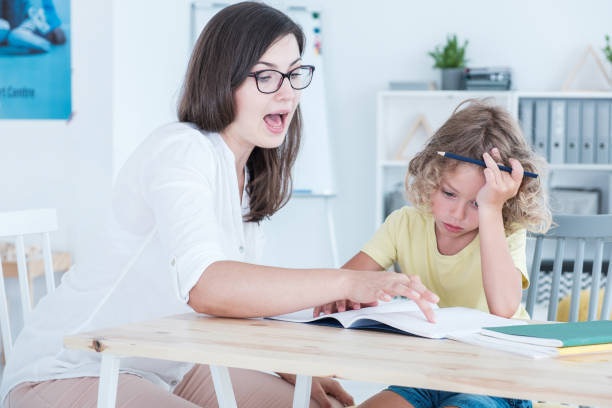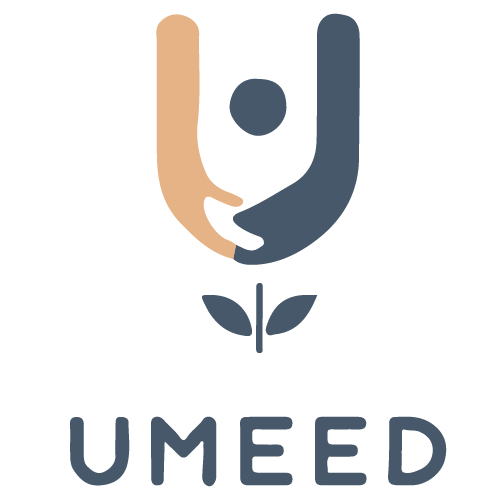Learning Disabilities Services at UMEED
At UMEED, we’re committed to providing all-encompassing support to people with learning difficulties. Our skilled group of psychologists and psychiatrists is dedicated to assisting children and adults in overcoming obstacles related to learning disabilities. We provide individualized evaluations, interventions, and therapy to support academic achievement and personal development.
Our Learning Disabilities Service
We provide a variety of services at UMEED to address learning disabilities:
Thorough Assessments
Extensive assessments are used to pinpoint particular learning problems and personal strengths and shortcomings.
Customized Treatment Plans
These plans are developed using evidence-based therapies to fit each individual's specific needs.
Individual and group therapy
Encouraging settings where people can acquire the knowledge and techniques necessary to manage their learning impairments successfully.
Support for Education
Working with schools to create Individualized Education Plans (IEPs) and offer modifications for the classroom.
Parental Guidance and Counseling
Parents can support their child's learning at home with training and tools.
Workshops and Seminars
Workshops and seminars are designed to provide parents, educators, and caregivers with more knowledge on learning difficulties and practical intervention techniques.
Our goal at UMEED is to enable people with learning difficulties to realize their most significant potential. Our committed staff is ready to help you at every turn. Effective parenting styles play a crucial role in supporting children with learning disabilities. Understanding and adapting to a child’s unique needs can significantly enhance their educational and personal development. Our Learning Disabilities Services offer guidance to parents, helping them implement supportive and nurturing parenting techniques. These strategies foster a positive learning environment, boost the child’s self-esteem, and encourage academic and social success. By working closely with parents, we ensure that children with learning disabilities receive the comprehensive support they need both at home and in educational settings.
What is a learning disability?
A neurological condition known as a learning disability impairs one or more of the fundamental psychological processes involved in comprehending and utilizing language, whether spoken or written. This may affect a person’s capacity to read, write, spell, listen, think, talk, and perform mathematical computations.
Types of Learning Disabilities
Learning disabilities can take on a variety of shapes. The main categories are as follows:
1. Dyslexia
This condition impairs language-based processing abilities, including reading.
2. Dyscalculia
This impairs a person’s capacity to learn math facts and comprehend numbers.
3. Non-Verbal Learning Disabilities
These mainly impact social, motor, and spatial awareness.
4. Auditory Processing Disorder
This condition interferes with the sense of hearing.
5. Dysgraphia
This affects one’s capacity for writing.

Specific Learning Disabilities
Along with the previously mentioned, the following unique learning problems are acknowledged:
- Deficiencies in fundamental reading skills
- Deficits in reading comprehension
- Calculation deficiencies in mathematics
- Deficits in answering difficulties in mathematics
- deficiencies in written expression
- Deficits in oral expression
- Deficits in listening comprehension
Symptoms of Learning Disabilities
Symptoms of learning disabilities might vary considerably. However, they frequently include:
- Challenges with reading and writing
- difficulties with mathematical concepts
- inadequate recall
- Having trouble adhering to instructions
- Incapacity or problems with motor skills
- inability to comprehend and adhere to instructions
- Organizational and time management issues

Learning Disabilities Across Life Stages
Learning Disabilities in Children
It’s critical to identify early. Symptoms usually start to show when kids start going to school. If your child exhibits poor social skills, has trouble focusing, or suffers with fundamental academic skills, they might benefit from an assessment.
Learning Disabilities in Adults
Adults with learning disabilities may experience difficulties in their daily lives, work, or social situations. Career counseling, skill development, and adaptive technology are a few forms of support.
Causes of Learning Disabilities
Genetic predispositions, neonatal and prenatal hazards, environmental exposures, and neurological impairments are frequently associated with learning problems. Our specialists at UMEED apply a multidisciplinary strategy to pinpoint the underlying issues and offer focused solutions.
Contact Us
If you or a loved one is dealing with a learning problem, make an appointment for a consultation with UMEED right away. Allow us to assist you in finding the path to prosperity and happiness.
